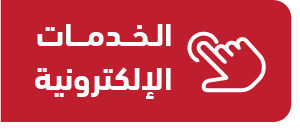برنامج الجينوم البحريني، هو برنامج بحث مسحي، يُقسِم المشاركين إلى فئتين ومراحل مختلفة، ففي المرحلة الأولى تم تحليل 6000 عينة من المشاركين بالتعاون مع جامعة هارفارد الأمريكية، وسيكتمل هذا التعاون الأولي في نهاية العام 2024، وسيحصل المشارك على نتيجته الفردية عند اكتمال عملية تحليل النتائج وفرزها، من قبل فريق الأطباء المتخصصين، الذين سيقومون بالتواصل أولاً مع الأشخاص ذوي النتائج التي تستدعي المتابعة والاستشارة الوراثية.
أما المرحلة الثانية، فسيتم تحليل 100,000 عينة محلياً، على مراحل تدريجية، وسيتم موافاة الجمهور بكل التحديثات المتعلقة بنتائجها أولاً بأول.
أن نتائج تحليل فحص الجينوم تحمل طابع الخصوصية البالغة، وسيتم التواصل مع المشارك بصورة شخصية عند اكتمال تحليل عينته من قبل فريق الجينوم.
إن مشاريع مركز الجينوم الوطني في المرحلة الحالية هي مشاريع بحث مسحية، ولكن مركز الجينوم الوطني ملتزم بمسؤولية مشاركة النتائج التي تحمل طابع الاستعجال الصحي وتوجد لها خطط علاجية استباقية ووقائية.
إذا كنت ترغب في المشاركة كفرد، قم بالدخول بمفتاحك الذكي في بوابة الحكومة الالكترونية، وقم بالتسجيل الالكتروني للمشاركة في برنامج الجينوم الوطني، يجب عليك التوجه إلى المركز الصحي التابع لمنطقة سكنك، وسيقوم كادر المختبر بسحب عينة الدم واعتماد المشاركة في برنامج الجينوم الوطني، بطريقة سهلة وميسرة دون الحاجة لحجز مسبق ودون موعد مع الطبيب.
كما يمكنك المشاركة في حملات مركز الجينوم التي يتم تنظيمها على مدار العام
في الأماكن العامة والمجمعات التجارية والمؤتمرات في مختلف أنواع المناسبات.
وفي حال رغبتك بالمشاركة كمؤسسة، فيمكنك التواصل مع فريق مركز الجينوم الوطني لتنظيم زيارة إلى مقر المؤسسة، وسيقوم فريق الجينوم بتنظيم حملة خاصة بكم.
لطلب تنظيم الحملات المؤسسية، يرجى التواصل عبر البريد الالكتروني : genome@health.gov.bh ، أو الاتصال على: 17-282240 .
حملة برنامج الجينوم البحريني يرحب بالمشاركين البالغين من عمر 18 عاماً. ولمن هم دون 18 عاماً، بإمكانهم المشاركة بموافقة وتسجيل الأب لابناءه عن طريق المفتاح الالكتروني في بوابة الحكومة الذكية.
إن برنامج الجينوم الوطني يركز على تحصيل الأهداف الصحية متمثلة بالتعرف على الطفرات والمتغيرات الوراثية التي بإمكانها أن تساهم في التشخيص المبكر وتجنب المضاعفات الخطيرة للكثير من الأمراض الوراثية، بالإضافة إلى تقييم الوضع الإنجابي للأسرة من ناحية الاستعداد الوراثي، ولا يكشف بتاتاً عن الأمور المتعلقة بالأعراق أو الأصول.
من خلال هذا البرنامج يتم التعرف على المتغيرات الصحية الجينية للمشاركين، ويساعد ذلك في تطبيقات الصيدلة الجينية وخيارات الدواء الصحيحة وتجنب المضاعفات الجانبية غير المتوقعة. كذلك، يدعم معرفة وضعهم الوراثي المتعلق بحمل طفرات أو متغيرات جينية مسببة للأمراض بالإمكان توريثها إلى الأبناء أم لا، بما ينعكس على جودة النظام الصحي ويساعد القطاع الصحي على وضع إجراءات صحية وقائية وعلاجية وفق خارطة البحرين الجينية.
شارك معنا في الوصول إلى هدف جمع 100,000 عينة !
أوضحت الدراسات المبدئية بأن الأمراض التالية هي الأكثر شيوعاً في العينات الأولية، وسيتم الكشف عن المزيد في المراحل القادمة مع اكتمال مراحل مشروع الجينوم الوطني:
-
أمراض الدم الوراثية: فقر الدم المنجلي، الثلاسيميا وغيرها.
-
الأورام السرطانية: سرطان الثدي والمبايض الوراثية.
-
أمراض القلب الجينية: تضخم عضلة القلب.
هو برنامج مسح بحثي رائد يشمل كل مواليد البحرين، يتم فيه أخذ عينة دم صغيرة من الحبل السري، وتخزينها في البنك الحيوي بطرق خاصة، بغرض عمل فك التسلسل الجيني الشامل لها على مراحل. يهدف هذا البرنامج لتحقيق عدة أهداف مستدامة منها:
- الاكتشاف المبكر للأمراض الوراثية ووضع تصور وطني شامل للأجيال القادمة من الناحية الصحية
- تحسين فرص العلاج والتدخل المبكر و تقليل معدلات الوفاة والمضاعفات طويلة الأمد
- دعم الأبحاث الجينية وتطوير الطب الشخصي وتطبيقاته في البحرين والمنطقة
- دراسة تكاليف الرعاية الصحية للأمراض الجينية ووضع السياسات الشاملة للرعاية الاستباقية



